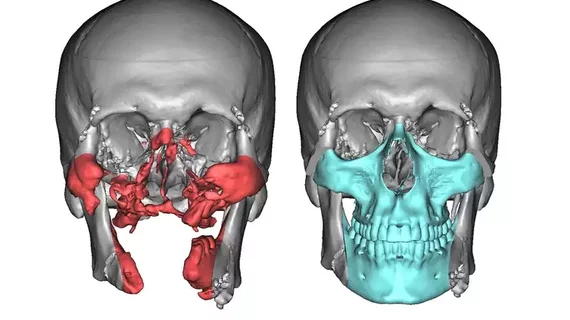How imaging, 3D printing gave one man a new face
On Jan. 6, medical imaging and three-dimensional (3D) printing went above and beyond standard applications when Eduardo Rodriguez, MD, a plastic surgeon and face transplant specialist at NYU Langone Medical Center in New York City, used the technologies to help him perform his third face transplant surgery on patient Cameron Underwood, according to a recent report by Popular Science.
Underwood, who had suffered a self-inflicted gunshot wound, was missing his upper and lower jaw, facial bones, gums, all 32 teeth, the roof and floor of his mouth, part of his tongue, his lower eyelids, cheeks, nose and parts of his nasal passage when he was admitted to NYU Langone days earlier.
Prior to the face transplant surgery, Rodriguez and his team took CT scans of Underwood’s face. The scans were then sent to a company in Michigan called Materialise, who converted the scans into a digital, 3D model of Underwood’s face so it could be used to plan every intricate part of the surgery.
The 3D model also helped the surgeons determine how they would remove most of Underwood’s face and attach the new face from the designated organ donor. The entire surgery took Rodriguez and his team 25 hours to complete, and, in the end, was successful.
“With better 3D printing, imaging, and other tools, doctors can work even faster and with even higher levels of precision, to give people in need even better faces. Still, the resources needed, like specially-trained doctors and registered donors, is still not very widespread,” according to the article. “Perhaps as the technology advances, this type of treatment will become more accessible to those who need it.”

